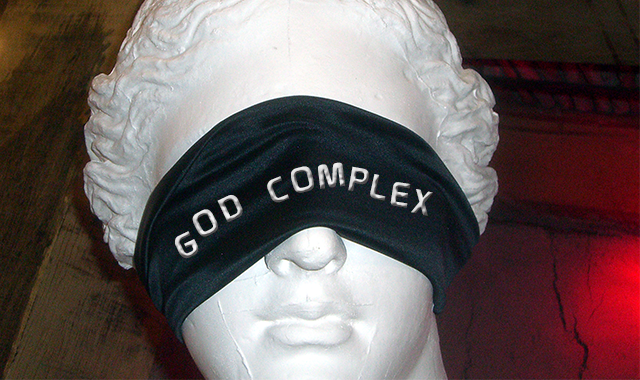
American diversity provides us with hundreds of viable answers for solving the challenges we face. While both sides of the aisle could agree with many of these solutions, our political leaders are not hearing or discussing any of them. Instead, these politicians fall prey to believing that their solutions are the best, and everyone else is misguided. If we want to have true solutions discussed in Washington, we first need to understand why even well-meaning politicians can be unwilling to recognize the faults in their own agendas.
Tim Harford discusses a human complex, termed the God Complex, which states that no matter how complicated the problem, we will often have an overwhelming belief that our solution is infallibly right. Harford argues the downfalls of the God Complex and his belief that we need to abandon it in light of a problem solving technique that actually works.
I see the God complex around me all the time in my fellow economists. I see it in our business leaders. I see it in the politicians we vote for — people who, in the face of an incredibly complicated world, are nevertheless absolutely convinced that they understand the way that the world works.The God Complex offers an explanation for why politicians, like all people, can become adamantly adverse to a compromise in their position. They believe that whatever solution they have come to is the only correct course of action. It also explains why bad solutions can seem good, and seemingly good solutions can often have very bad consequences.
This complex has roots in the mental models we create for ourselves based on the experiences we have had and the limited knowledge we have learned over the course of our lives. These models aid in answering complex questions quickly, which often serves us well. However, the creation of these mental models can sometimes constrain us and lead us to believe in false truths. Like a magician doing a trick on the street, our experiences can sometimes keep us from seeing what is right in front of our eyes.
When a particular solution seems to fit perfectly into the models we have created for ourselves – its justification sometimes seems insurmountable. However, since we each live a very different life, it is no surprise that sometimes we turn up with very different mental models of how the world works. Each of our different experiences can lead us to different insights on a problem, not all of which are compatible.
These insights form the basis of the democratic philosophy, where the combined experiences of a population are used to vote on the representative that best fits the narrative they hold about how the government should work. When conflicting narratives create contradictory solutions – recognition on why this has happened is critical to creating beneficial compromises. But our implementation of this cornerstone of a Republic has shown itself to be less than perfect.
Too many of our politicians have fallen prey to the God Complex and a deeply polarized government has arisen. Conservative and liberal mindsets compete for popular opinion. While this competition could create middle ground solutions, the God Complex has gotten so out of hand, compromise has become impossible. An environment has developed where each side of the isle believes that their solutions are the only real solutions, and anyone who opposes them is doing so with selfish intentions.
The time has come to bridge the divide in our country. The only way to do this is to break through the delusions of omniscience which have gripped our politicians and many of our fellow citizens. We at the Picket Project will work towards challenging oversimplified interpretations in order to show the full complexity of the world we live in. It is in this complexity that we will see where ideological models conflict, and where they can be modified to better fit reality.
As always, we look forward to hearing your opinions; we will be regularly updating our content based on the conversations started here through the comment system on the blog, our Facebook page, and Twitter using the #PicketProject hashtag.
No comments:
Post a Comment